Faculty research
Classics
Thomas D. Kohn
Ancient theatre, mythology, performance criticism, Roman poetry
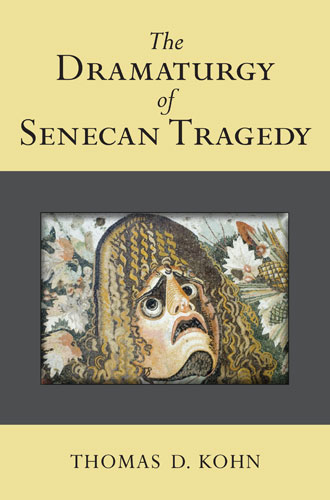 The first-century Roman tragedies of Seneca, like all ancient drama, do not contain the sort of external stage directions that we are accustomed to today; nevertheless, a careful reading of the plays reveals such stage business as entrances, exits, setting, sound effects, emotions of the characters, etc.
The first-century Roman tragedies of Seneca, like all ancient drama, do not contain the sort of external stage directions that we are accustomed to today; nevertheless, a careful reading of the plays reveals such stage business as entrances, exits, setting, sound effects, emotions of the characters, etc.
In "The Dramaturgy of Senecan Tragedy" (U of Michigan Press, 2013), Professor Kohn teases out these dramaturgical elements in Seneca's work and uses them both to aid in the interpretation of the plays and to show the playwright's artistry. The book lays the groundwork for appreciating Seneca's techniques in the individual dramas.
Each chapter explores an individual tragedy in detail, discussing the dramatis personae and examining how the roles would be distributed among a limited number of actors, as well as the identity of the Chorus while making a compelling argument for Seneca as a dramaturg in the true sense of the word: "a maker of drama."
This is the first comprehensive study of all the plays in twenty-five years and the first ever to consider not just stagecraft but also metatheatrical issues, such as the significant distribution of roles among a limited number of actors, in addition to the emotional states of the characters.
Michele Ronnick
Classical studies, African-American studies
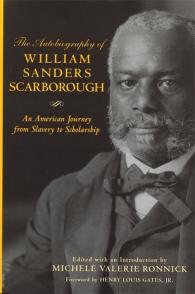 "The Autobiography of William Sanders Scarborough" (Wayne State Press, 2004), edited by Michele Valerie Ronnick, traces Scarborough's path out of slavery in Macon, Georgia, to a prolific scholarly career that culminated with his presidency of Wilberforce University. Despite the racism he met as he struggled to establish a place in higher education for African Americans, Scarborough was an exemplary scholar, particularly in classical studies. He was the first African-American member of the Modern Language Association, a forty-four-year member of the American Philological Association and a true champion of higher education. Scarborough advocated the reading, writing and teaching of liberal arts at a time when illiteracy was rampant due to slavery's legacy, white supremacists were dismissing the intellectual capability of blacks and Booker T. Washington was urging African Americans to focus on industrial skills and training. The Autobiography of William Sanders Scarborough is a valuable historical record of the life and work of a pioneer who helped formalize the intellectual tradition of the black scholar. Michele Valerie Ronnick contextualizes Scarborough's narrative through extensive notes and by exploring various sources such as census records, church registries, period newspapers and military and university records. This book is indispensable to anyone interested in the history of intellectual endeavor in America, Africana studies and classical studies, in particular, as well as those familiar with the associations and institutions that welcomed and valued Scarborough.
"The Autobiography of William Sanders Scarborough" (Wayne State Press, 2004), edited by Michele Valerie Ronnick, traces Scarborough's path out of slavery in Macon, Georgia, to a prolific scholarly career that culminated with his presidency of Wilberforce University. Despite the racism he met as he struggled to establish a place in higher education for African Americans, Scarborough was an exemplary scholar, particularly in classical studies. He was the first African-American member of the Modern Language Association, a forty-four-year member of the American Philological Association and a true champion of higher education. Scarborough advocated the reading, writing and teaching of liberal arts at a time when illiteracy was rampant due to slavery's legacy, white supremacists were dismissing the intellectual capability of blacks and Booker T. Washington was urging African Americans to focus on industrial skills and training. The Autobiography of William Sanders Scarborough is a valuable historical record of the life and work of a pioneer who helped formalize the intellectual tradition of the black scholar. Michele Valerie Ronnick contextualizes Scarborough's narrative through extensive notes and by exploring various sources such as census records, church registries, period newspapers and military and university records. This book is indispensable to anyone interested in the history of intellectual endeavor in America, Africana studies and classical studies, in particular, as well as those familiar with the associations and institutions that welcomed and valued Scarborough.
Folklore and fairy-tale studies
Anne E. Duggan
French and fairy-tale studies
 Anne Duggan is the general series editor of the six-volume "A Cultural History of Fairy Tales" (Bloomsbury, 2021) as well as the editor of the fourth volume in the series: "A Cultural History of Fairy Tales in the Long Eighteenth Century" (Bloomsbury, 2021). How have the fairy tales of different cultures changed over the centuries? What do they tell us about our fears and hopes? In a work spanning 2,500 years, these ambitious questions are addressed by over 50 experts, each contributing their overview of a theme applied to a historical period. With the help of a broad range of case material, they illustrate broad trends and nuances of the fairy tale in Western culture from antiquity to the present. Individual volume editors ensure the cohesion of the whole and to make it as easy as possible to use, chapter titles are identical across each volume. This gives the choice of reading about a specific period in one of the volumes or following a theme across history by reading the relevant chapter in each of the six. The six volumes cover: 1 Antiquity (500 B.C.E. to 800 C.E.); 2 Medieval Age (800 to 1450); 3 The Age of the Marvelous (1450 to 1650); 4 The Long Eighteenth Century (1650 to 1800); 5 The Long Nineteenth Century (1800 to 1920); 6 The Modern Age (1920 to the present).
Anne Duggan is the general series editor of the six-volume "A Cultural History of Fairy Tales" (Bloomsbury, 2021) as well as the editor of the fourth volume in the series: "A Cultural History of Fairy Tales in the Long Eighteenth Century" (Bloomsbury, 2021). How have the fairy tales of different cultures changed over the centuries? What do they tell us about our fears and hopes? In a work spanning 2,500 years, these ambitious questions are addressed by over 50 experts, each contributing their overview of a theme applied to a historical period. With the help of a broad range of case material, they illustrate broad trends and nuances of the fairy tale in Western culture from antiquity to the present. Individual volume editors ensure the cohesion of the whole and to make it as easy as possible to use, chapter titles are identical across each volume. This gives the choice of reading about a specific period in one of the volumes or following a theme across history by reading the relevant chapter in each of the six. The six volumes cover: 1 Antiquity (500 B.C.E. to 800 C.E.); 2 Medieval Age (800 to 1450); 3 The Age of the Marvelous (1450 to 1650); 4 The Long Eighteenth Century (1650 to 1800); 5 The Long Nineteenth Century (1800 to 1920); 6 The Modern Age (1920 to the present).
Donald Haase
German and fairy tale studies
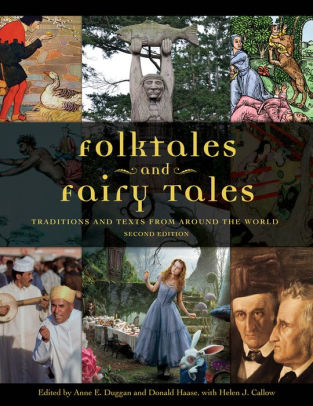 Alphabetically organized and global in scope, "Folktales and Fairy Tales: Traditions and Texts from Around the World" (ABC-CLIO, 2nd Ed., 2016; 4 vols.) is the only multivolume reference in English to offer encyclopedic coverage of this subject matter. The four-volume collection, edited by Professors Anne Duggan and Donald Haase, covers national, cultural, regional and linguistic traditions from around the world; motifs, themes, characters and tale types; as well as topics of contemporary importance such as the fairy tale in manga, television, pop music and music videos.
Alphabetically organized and global in scope, "Folktales and Fairy Tales: Traditions and Texts from Around the World" (ABC-CLIO, 2nd Ed., 2016; 4 vols.) is the only multivolume reference in English to offer encyclopedic coverage of this subject matter. The four-volume collection, edited by Professors Anne Duggan and Donald Haase, covers national, cultural, regional and linguistic traditions from around the world; motifs, themes, characters and tale types; as well as topics of contemporary importance such as the fairy tale in manga, television, pop music and music videos.
Writers and illustrators are included, as are filmmakers and composers, of course, the tales themselves. The expert entries within volumes one through three are based on the latest research and developments, while volume four comprises tales and texts.
French studies
Alina Cherry
Contemporary French literature and theory
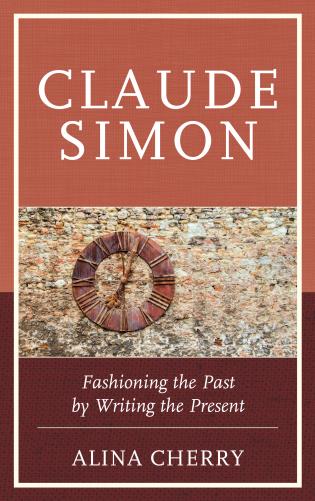 In his 1985 Nobel speech, as well as on numerous other occasions, French novelist Claude Simon (19132005) expressed a fascination with simultaneity through the provocative claim that he never wrote about the past but rather attempted to capture only what was happening during the writing process in the "present of writing," as he put it.
In his 1985 Nobel speech, as well as on numerous other occasions, French novelist Claude Simon (19132005) expressed a fascination with simultaneity through the provocative claim that he never wrote about the past but rather attempted to capture only what was happening during the writing process in the "present of writing," as he put it.
Simon's seemingly unambiguous claim raises significant issues and contradictions when it is considered in the light of his fictional works since these must be construed, for the most part, as explorations of the past. In "Claude Simon: Fashioning the Past by Writing the Present" (Fairleigh Dickinson, 2016), Alina Cherry looks at the tensions arising from this paradox and examines the "present of writing" as a stylistic device and within the thematic context of Simon's works.
This allows her to assess its capacity for becoming an instrument of ontological and epistemological inquiry that can also intervene powerfully in the decisive philosophical and sociopolitical debates that have animated the cultural landscape of post-World War II France.
German studies
Anne Rothe
Popular culture, cultural memory, interview methodology, Germans in Israel, Holocaust Studies
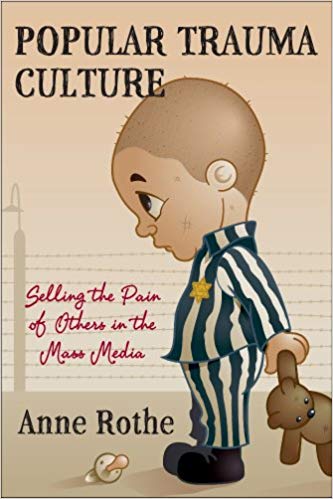 Transgressing disciplinary boundaries, Anne Rothe argues in "Popular Trauma Culture: Selling the Pain of Others in the Mass Media" (Rutgers, 2011) that American Holocaust discourse has a particular plot structure characterized by a melodramatic conflict between good and evil and embodied in the core characters of victim/survivor and perpetrator and that it provides the paradigm for mass media representations of personal experiences of pain and suffering.
Transgressing disciplinary boundaries, Anne Rothe argues in "Popular Trauma Culture: Selling the Pain of Others in the Mass Media" (Rutgers, 2011) that American Holocaust discourse has a particular plot structure characterized by a melodramatic conflict between good and evil and embodied in the core characters of victim/survivor and perpetrator and that it provides the paradigm for mass media representations of personal experiences of pain and suffering.
After analyzing core Holocaust tropes, including its political appropriation, the notion of vicarious victimhood, so-called victim talk rhetoric and the infusion of the survivor figure with Social Darwinism, the author explores the embodiment of popular trauma culture in two core mass media genres, daytime TV talk shows and misery memoirs.
She argues that the pain of others is represented as trauma kitsch on talk shows like Oprah and as trauma camp on modern-day freak shows like Springer. Although misery memoirs, which depict extreme violence as a spectacle and thus often focus on child abuse, constitute the most significant growth sector in American book publishing and have been widely debated in journalism, the book concludes with the first scholarly analysis of this genre.
Italian Studies
Raffaele DeBenedictis
Dante studies, multimodality, semiotics
In "Wordly Wise: The Semiotics of Discourse in Dante's Commedia" (Peter Lang, 2012), Raffaele De 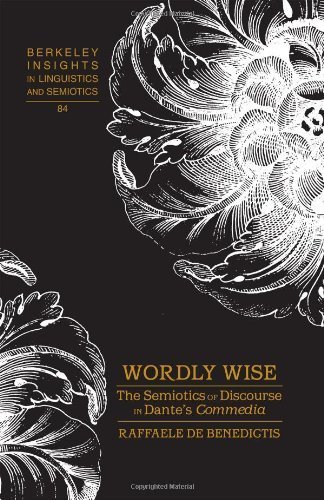 Benedictis proposes a new critical method for studying the Divine Comedy and Dante's minor works. It systematically and comprehensively addresses the discursive aspect of Dante's works. It focuses mainly on the reader, who, along with the author and the text, contributes to making discursive paths and discourse-generating functions through the act of reading.
Benedictis proposes a new critical method for studying the Divine Comedy and Dante's minor works. It systematically and comprehensively addresses the discursive aspect of Dante's works. It focuses mainly on the reader, who, along with the author and the text, contributes to making discursive paths and discourse-generating functions through the act of reading.
This work allows the reader to become acquainted with how meaning is generated and whether it is granted legitimacy in the text or not. Also, in a system of signification, sign function and sign production are not limited to the properties of the mind but are the result of working interactively with the properties of discourse, which (the latter) provide directionality for the reader's enunciation(s) in action.
Elena Past
Italian Ecocinema, Ecomedia Studies and Ecocriticism
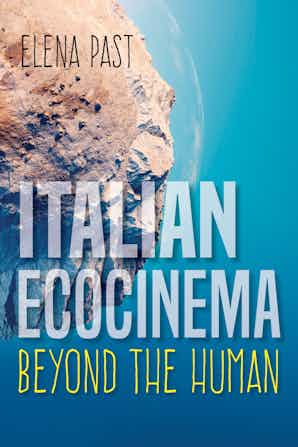 Entangled in the hybrid fields of ecomedia studies and material ecocriticism, in "Italian Ecocinema Beyond the Human" (Indiana University Press, 2019), Elena Past examines five Italian films shot on location and ponders the complex relationships that the production crews developed with the filming locations and the nonhuman cast members. She uses these films Desert (1964), The Winds Blows Round (2005), Gomorrah (2008), Le Quattro Volte (2010) and Return to the Aeolian Islands (2010) as case studies to explore pressing environmental questions such as cinema's dependence on hydrocarbons, the toxic waste crisis in the region of Campania and our reliance on the nonhuman world. Dynamic and unexpected actors emerge as the subjects of each chapter: playful goats, erupting volcanoes, airborne dust particles, fluid petroleum and even the sound of silence. Based on interviews with crew members and close readings of the films, Italian Ecocinema Beyond the Human theorizes how filmmaking practices, from sound recording to location scouting to managing a production, help uncover cinema's ecological footprint and potential to open new perspectives on the nonhuman world.
Entangled in the hybrid fields of ecomedia studies and material ecocriticism, in "Italian Ecocinema Beyond the Human" (Indiana University Press, 2019), Elena Past examines five Italian films shot on location and ponders the complex relationships that the production crews developed with the filming locations and the nonhuman cast members. She uses these films Desert (1964), The Winds Blows Round (2005), Gomorrah (2008), Le Quattro Volte (2010) and Return to the Aeolian Islands (2010) as case studies to explore pressing environmental questions such as cinema's dependence on hydrocarbons, the toxic waste crisis in the region of Campania and our reliance on the nonhuman world. Dynamic and unexpected actors emerge as the subjects of each chapter: playful goats, erupting volcanoes, airborne dust particles, fluid petroleum and even the sound of silence. Based on interviews with crew members and close readings of the films, Italian Ecocinema Beyond the Human theorizes how filmmaking practices, from sound recording to location scouting to managing a production, help uncover cinema's ecological footprint and potential to open new perspectives on the nonhuman world.
Near Eastern studies
Vanessa DeGifis
Qur'anic and Islamic studies
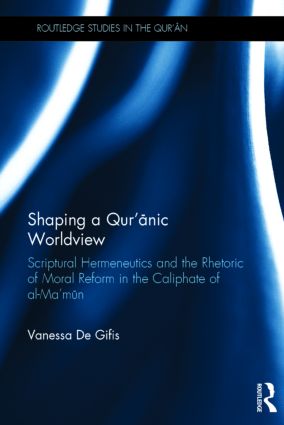 Professor De Gifis' book, "Shaping a Qurʾānic Worldview" (Routledge, 2014), is the first sustained examination of references to the Qur'an in the rhetoric of the Islamic Caliphate in light of classical Arabic rhetorical and grammatical theories.
Professor De Gifis' book, "Shaping a Qurʾānic Worldview" (Routledge, 2014), is the first sustained examination of references to the Qur'an in the rhetoric of the Islamic Caliphate in light of classical Arabic rhetorical and grammatical theories.
Through analyzing texts attributed to the famous Caliph al-Maʾmūn (r. 813-833 C.E.), she draws critical connections between the circumstances and techniques of Qur'anic referencing. She illustrates how rhetorical use of the scripture functions as analogical exegesis, whereby verses in the Qur'an are reinterpreted through the lens of subjective experience. At the same time, socio-historical experiences are understood in Qur'anic terms.
The book highlights the rhetorical features of the Qur'anic corpus. It stimulates broader conversations about the practical impact of Qur'anic themes on articulating distinctly Islamic moral values and historical vision.
Mohamed El-Sharkawi
Near Eastern Studies, Arabic Linguistics
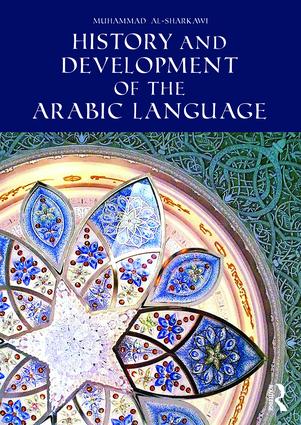 Professor El-Sharkawi's "History and Development of the Arabic Language" (Routledge, 2017) is a general introduction for students to the history of the Arabic language. It is divided into two parts: the pre-Islamic language and the emergence of the first well-known works of Classical Arabic.
Professor El-Sharkawi's "History and Development of the Arabic Language" (Routledge, 2017) is a general introduction for students to the history of the Arabic language. It is divided into two parts: the pre-Islamic language and the emergence of the first well-known works of Classical Arabic.
Secondly, the transition from the pre-Islamic situation to the complex Arabic language forms after the emergence of Islam and the Arab conquests, both in Arabia and the diaspora. The book focuses on the pre-Islamic linguistic situation, where pre-Islamic Arabia's linguistic geography and relevant demographic aspects will be introduced. In addition, the book also discusses the communicative contexts and varieties of Modern Arabic.
Spanish and Latin American studies
Victor Figueroa
Latin American studies
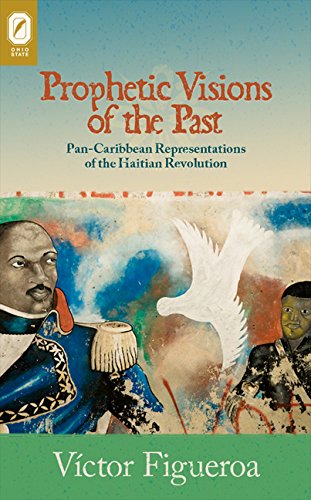 In "Prophetic Visions of the Past: Pan-Caribbean Representations of the Haitian Revolution" (Ohio State UP, 2015), Víctor Figueroa examines how the Haitian Revolution has been represented in twentieth-century literary works from across the Caribbean. Building on the scholarship of key thinkers of the Latin American "decolonial turn," such as Enrique Dussel, Aníbal Quijano, Walter Mignolo and Nelson Maldonado-Torres, Figueroa argues that examining how Haiti's neighbors tell the story of the Revolution illuminates its role as a fundamental turning point in both the development and radical questioning of the modern/colonial world system.
In "Prophetic Visions of the Past: Pan-Caribbean Representations of the Haitian Revolution" (Ohio State UP, 2015), Víctor Figueroa examines how the Haitian Revolution has been represented in twentieth-century literary works from across the Caribbean. Building on the scholarship of key thinkers of the Latin American "decolonial turn," such as Enrique Dussel, Aníbal Quijano, Walter Mignolo and Nelson Maldonado-Torres, Figueroa argues that examining how Haiti's neighbors tell the story of the Revolution illuminates its role as a fundamental turning point in both the development and radical questioning of the modern/colonial world system.
"Prophetic Visions of the Past" addresses work by Alejo Carpentier (Cuba), C. L. R. James (Trinidad), Luis Palés Matos (Puerto Rico), Aimé Césaire (Martinique), Derek Walcott (Saint Lucia), Edouard Glissant (Martinique) and Manuel Zapata Olivella (Colombia).
While underscoring each writer's unique position, Figueroa also addresses their shared geographical, historical and sociopolitical preoccupations, closely linked to the region's prolonged experience of colonial interventions.